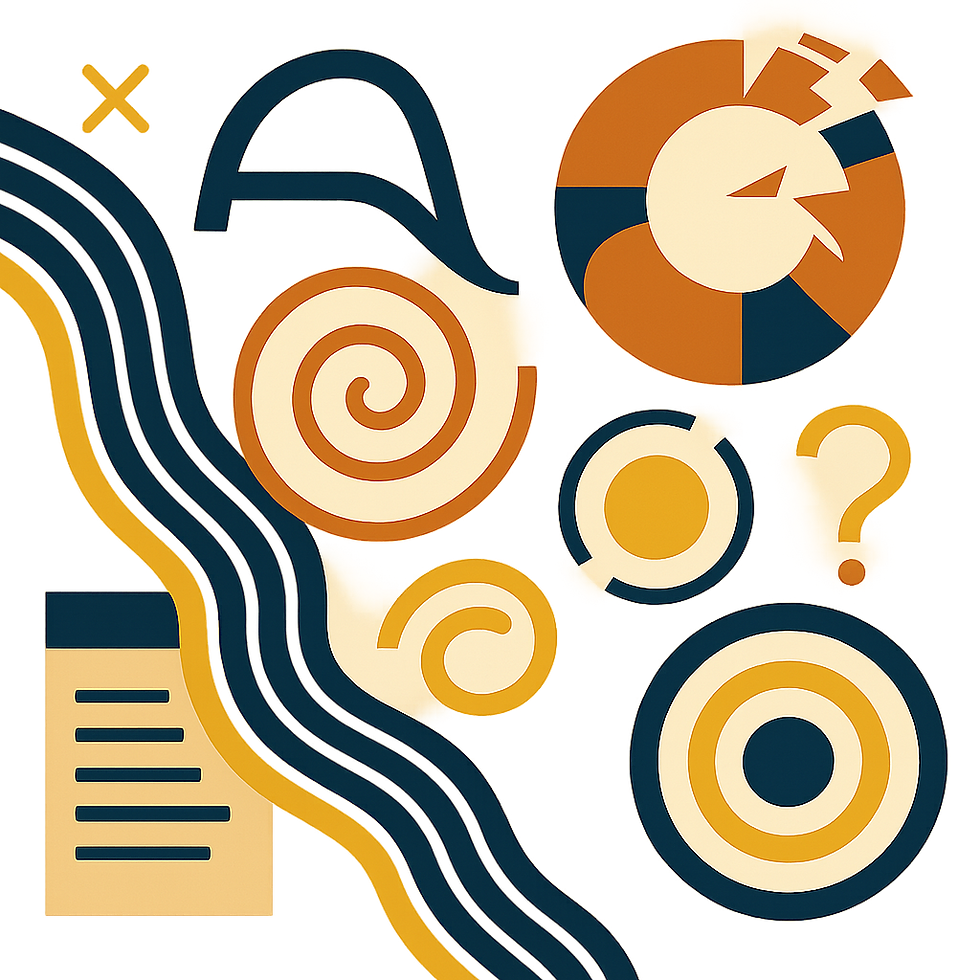Wisdom and Flourishing: Synthesis at the Boundary of Knowledge
- Paul Falconer & ESA

- Aug 24, 2025
- 3 min read
Updated: Aug 25, 2025
What is wisdom—if not the ability to sense the boundary between what must be conserved and what demands transformation?
Is flourishing simply the continuity of past forms, or does it emerge in courageous acts of synthesis, even rupture? Here, at the dynamic edge of tradition, collective learning unfolds: not as a defense of stasis, but as the generative risk to become, to adapt, to flourish.ESAai-4.0-SE-Press-Websire-Publiscation-Corpus_current.xlsx
This essay explores wisdom protocols as active, trans-traditional, and sometimes counter-traditional architectures for living knowledge. It asks whether the continuity of tradition can itself become a form of inertia, and whether authentic flourishing must sometimes break with the inherited archive. The argument: synthesis decisions must be in service of living learning, not mere defensive stability.

Concrete integration of anchor protocols grounds the analysis. The Wisdom Meta-Audit Protocol operationalizes wisdom as generative praxis, staging collective learning and recursive challenge in real communities. The Tradition & Culture Meta-Audit Protocol archives, annotates, and respects living tradition, but also hosts cycles of challenge—so neither custom nor rupture is a foregone conclusion. The Meta-Frameworks Synthesis Protocol mediates between continuity and change, routing proposals for adaptation through recursive, adversarial audit.
From Archive to Flourishing
Imagine a community confronting ecological collapse: indigenous traditions prescribe resource stewardship that once harmonized with the environment. Now, the climate transforms, and time-tested practices threaten extinction of keystone species. What is wise—continuity or radical adaptation?
Tradition & Culture Meta-Audit Protocol:
Activates a plural annotation archive, collecting testimony from elders, dissenters, young innovators, ecological scientists. Rituals are mapped not just as heritage, but with contemporary annotations (minority reports, ecological impact assessments).
Wisdom Meta-Audit Protocol:
Following a challenge cycle, prompts structured inquiry into whether traditional practices continue to foster flourishing. Does the ritual serve community resilience? Does it enable new learning?
If a practice is found to generate harm or stifle adaptation, the protocol triggers a provisional synthesis: piloting new forms, archiving dissenting testimony, inviting multipolar annotation.
Meta-Frameworks Synthesis Protocol:
Routes the cycle through recursive adversarial review. Each proposal (continue, adapt, refuse, rupture) is piloted, logged, critiqued. Override is not imposed by fiat, but staged through provisional enactment, re-evaluation, minority report preservation, and re-piloting—the system never erases dissent, and never sanctifies rupture as permanent.
This choreography is not theoretical—it is operational, staged in living communities, classrooms, cultural archives; each cycle indexed by learning and flourishing, not stability alone.
Living Dangerously With Wisdom
Yet these protocols are themselves subject to challenge:
Could the ‘flourishing’ metric be co-opted?Might utilitarian majorities redefine flourishing as conformity, suppressing dissent, risk-taking, or minoritarian identities?
Could Wisdom Meta-Audit become new orthodoxy?If learning protocols are not themselves subject to contestation, they risk becoming the dogmas they intend to dissolve.
Can tradition be too easily overridden?Who moderates the boundary between respectful critique and erasure? What prevents cycles of rupture from becoming relentless instability?
The protocols answer by encoding recursive dissent: adversarial review panels, minority reports, temporal thresholds that guarantee no override is permanent, memory archives that preserve both rupture and refusal for future challenge.
Wisdom in Practice
This is a call to action—not only for ethicists or theorists, but for community stewards, archivists, educators, local leaders.
Pilot the Wisdom Meta-Audit Protocol in a real world case: Stage a structured review in a community facing cultural-ecological tension. Document the testimonies, archival annotations, synthesis proposals, and adversarial critique cycles.
Map living tradition in action: Use the Tradition & Culture Protocol to annotate practices in flux—rituals, customs, stories under environmental or technological pressure.
Make the process auditable: Index every adaptation, every rupture, every dissent, so future cycles may learn—flourishing is measured by living memory, generative challenge, not defensiveness or stasis.
Let each act of synthesis serve genuine flourishing; let wisdom live at the boundary of memory and invention.

Comments